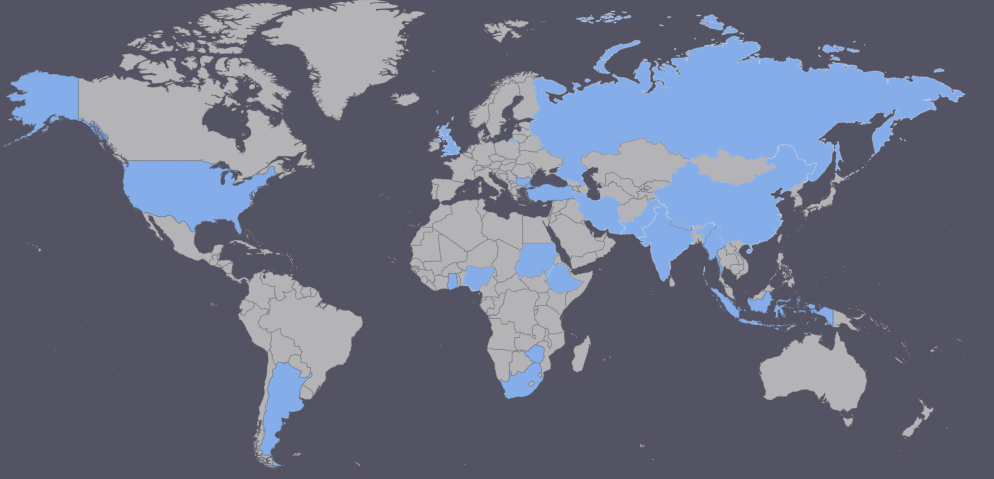Modified 9K Medium for Ore Bioleaching
Keywords:
Acidithiobacillus ferrooxidans, 9K medium, Modification, Iron oxidation, Acid mine drainageAbstract
Bioleaching applications with Acidithiobacillus ferrooxidans (A.f) have shown significant progress in recent years. Before being used in bioleaching applications, bacterial isolation processes must be performed and they must be provided to reach sufficient purity, activity, and population. For this, mediums are prepared by using various nutrient mixtures in different ratios. In this study, it was tried to obtain a modified medium that could be an alternative to the 9K medium of Silverman and Lundgren. At the same time, bacterial growth rates and Fe oxidation rates were investigated. During the modification process, KH2PO4 was used instead of K2HPO4, and its effects on bacterial growth were investigated by increasing the amount of FeSO4.7H2O. The experiments were conducted in 250 mL shaken flasks for 16 days in a continuous incubator system. In the experiments, bacterial growth and Fe oxidation were investigated by analyzing ferric ion concentration in specific periods and observing the color change of the solution. At the end of the experiments, it was determined that the highest iron oxidation efficiency, the lowest acid consumption and the best bacterial growth were in Medium 6 (0.1 g/L FeSO47H2O, non-KH2PO4).
References
Bosecker, K., 1997. Bioleaching: metal solubilization by microorganisms. FEMS Microbiology Reviews 20, 591-604. https://doi.org/10.1016/S0168-6445(97)00036-3.
Cheng, K.Y., Acuna, C.C.R., Boxall, N.J., Li, J., Collinson, D., Morris, C., du Plessis, C.A., Streltsova, N., Kaksonen, A.H., 2021. Effect of ınitial cell concentration on bio-oxidation of pyrite before gold cyanidation. Minerals 11 (8), 834. https://doi.org/10.3390/min11080834.
Fransan, M.A.H., 1985. Standard methods for the examination of water and wastewaster. 16th APBHA, AWWA, WPCF.
Gülensoy, H., 1984. Kompleksometrenin esasları ve kompleksometrik titrasyonlar. İstanbul, Turkey (in Turkish).
Karamanev, D.G., Nikolov, L.N., Mamatarkova, V., 2002. Rapid simultaneous quantitative determination of ferric and ferrous ions in drainage waters and similar solutions. Mineral Engineering 15 (5), 341-346. https://doi.org/10.1016/S0892-6875(02)00026-2.
Kawabe, Y., Suto, K., Inoue, C. Chida, T., 1999. Enhancement of the specific growth rate of Thiobacillus ferrooxidans by diatomaceous earth. Journal of Bioscience and Bioengineering 88, 374-379. https://doi.org/10.1016/S1389-1723(99)80213-8.
Lavalle, L., Chiacchiarini, P., Pogliani, C., Donati, E., 2005. Isolation and characterization of acidophilic bacteria from Patagonia, Argentina. Process Biochemistry 40 (3-4), 1095-1099. https://doi.org/10.1016/j.procbio.2004.03.008.
Lazaroff, N., 1963. Sulphate requirement for iron oxidation by Thiobacillus ferrooxidans. Journal of Bactechnology 85 (1), 78-83.
Leathen, W.W., Kinsel, N.A., Braley, S.A., 2001. Ferrobacillus ferrooxidans: a chemosynthetic autotrophic bacterium. Journal of Bacteriology 72, 700-704. https://doi.org/10.1128/jb.72.5.700-704.1956.
Manning, H.L., 1975. New medium for isolating iron-oxidizing and heterotrophic acidophilic bacteria from acid mine drainage. Applied Microbiology 30, 1010-1016.
Mather, J.P., Roberts, P.E., 1998. Introduction to Cell and Tissue Culture: Theory and Technique, Plenum Press. New York and London.
Mutch, L.A., Watling, H.R., Watkin, E.L.J., 2010. Microbial population dynamics of inoculated low-grade chalcopyrite bioleaching columns. Hydrometallurgy 104 (3-4), 391-398. https://doi.org/10.1016/j.hydromet.2010.02.022.
Qiu, M., Wang, G., Zhang, W., Xiong, S., 2006. Optimizing conditions for bacterial leaching of copper from discarded mines. Journal of University of Science and Technology Beijing, Mineral, Metallurgy, Material 13 (2), 108-111. https://doi.org/10.1016/S1005-8850(06)60024-8.
Ongendangenda, H.N., Ojumu, T.V., 2011. The effect of initial pH on the kinetics of ferrous-iron biooxidation at low temperature. African Journal of Biotechnology 10 (9), 1679-1683. https://doi.org/10.5897/AJB10.1363.
Seifelnassr, A.A., Abouzeid, A.Z.M., 2000. New trends in mineral processing: Exploitation of bacterial activities. Ore Dressing 4, 17-41.
Seitkamal, K.N., Zhappar, N.K., Shaikhutdinov, V.M., Shibayeva, A.K., Ilyas, S., Korolkov, I.V., Kim, H., 2020. Bioleaching for the removal of arsenic from mine tailings by Psychrotolerant and mesophilic microbes at markedly continental climate temperatures. Minerals 10 (11), 972. https://doi.org/10.3390/min10110972.
Silverman, M.P., Lundgren, D.G., 1959. Studies on the chemoautotrophic iron bacterium. Ferrobacillus ferrooxidans, I. An improved medium and a harvesting procedure for securing high cell yields. Journal of Bacteriology 77 (5), 642-647.
Spencer, P.A., 2001. Influence of bacterial culture selection on the operation of a plant treating refractory gold ore. International Journal of Mineral Processing 62 (1-4), 217-229. https://doi.org/10.1016/S0301-7516(00)00054-5.
Tuovinen, O.H., Kelly, D.P., 1973. Studies on the growth of Thiobacillus ferrooxidans. I. Use of membrane filters and ferrous iron agar to determine viable numbers and comparison with CO2 fixation and iron oxidation as measures of growth. Archiv für Microbiologie 88, 285-298.
Downloads
Published
Issue
Section
License
The authors keep the copyrights of the published materials with them, but the authors are aggee to give an exclusive license to the publisher that transfers all publishing and commercial exploitation rights to the publisher. The puslisher then shares the content published in this journal under CC BY-NC-ND license.



